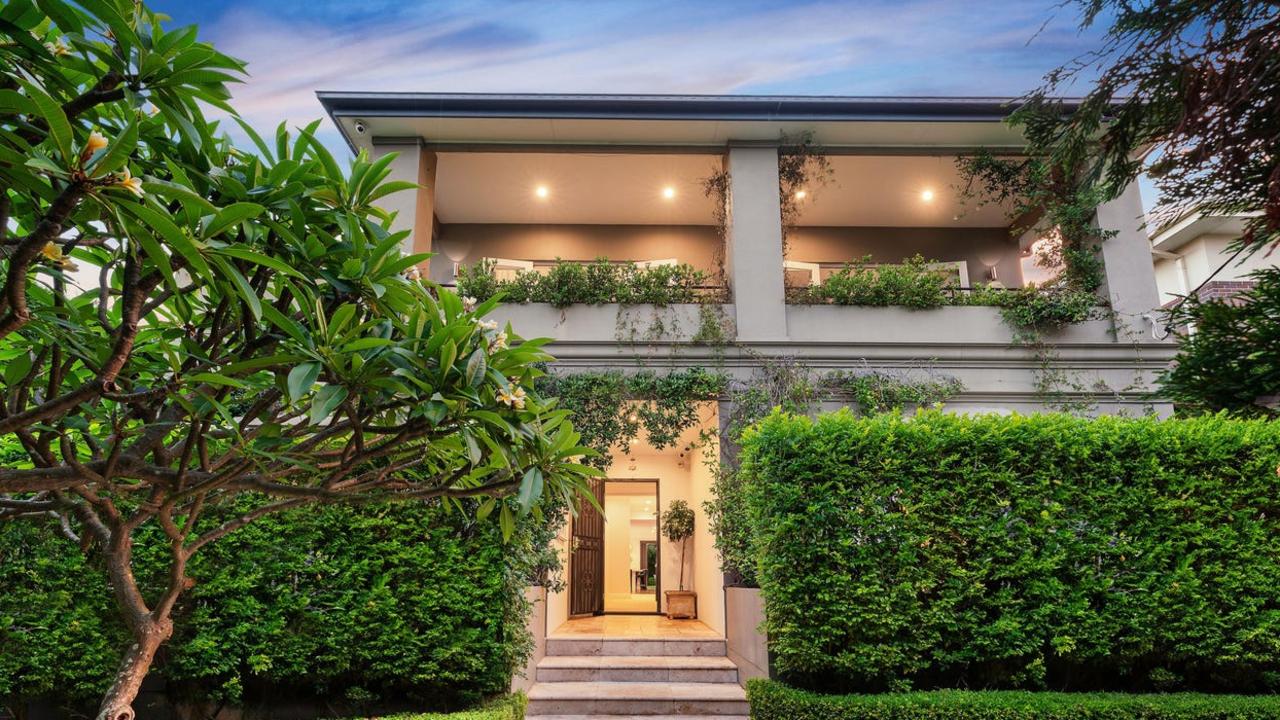Consumers suffer while power company chiefs pocket heft pay rises
Power company fat cat bosses are lapping up over $10m in pay increases as ordinary Australian’s are left struggling to pay their electricity bills.

NSW
Don't miss out on the headlines from NSW. Followed categories will be added to My News.
While their customers fret about how to pay their electricity bills, Australia’s big three power companies have increased pay to their fat cat bosses by more than $1 million in the past 12 months – to over $10m.
New financial statements lodged in Australia and Hong Kong reveal Origin, EnergyAustralia and AGL forked out $5.6m, $2.8m and $2.3m respectively to their top executives in the year to the end of June.
Origin’s head honcho Frank Calabria, who lives in a Mosman mansion worth $11 million, enjoyed a $700,000 surge in take-home earnings, its annual report shows, as the company delivered a near 60 per cent profit jump to $1.18 billion on soaring electricity margins.
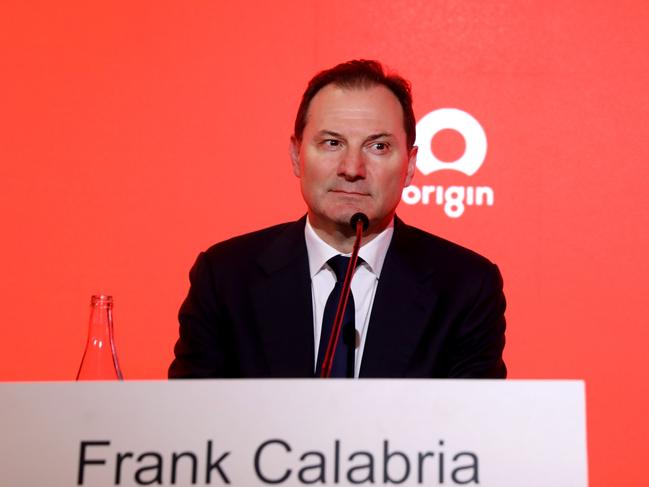
EnergyAustralia’s Mark Collette got a bump of about $800,000 last calendar year, according to the filings of its ultimate owner, China Light and Power Holdings.
Mr Collette’s pay has been lifted by a further 10 per in the first half of calendar 2024, according to China Light and Power’s latest earnings report, in which it called out EnergyAustralia as a star performer.

The size of the increase in pay to AGL chief Damien Nicks cannot be calculated because he was not with the business for all of the 2023 financial year.
What is known is that on top of his $2.3m pay packet in 2023-24, he was awarded more than $700,000 in shares to be allocated next month.
AGL’s annual net profit increased 189 per cent to $812m last financial year and it doubled its dividend to shareholders, the largest being activist billionaire Mike Cannon-Brookes.
At the same time as these power giants were increasing their executives’ pay, benchmark power prices in large parts of NSW, Victoria, Queensland and South Australia rose by more than 20 per cent under decisions taken by market regulators.
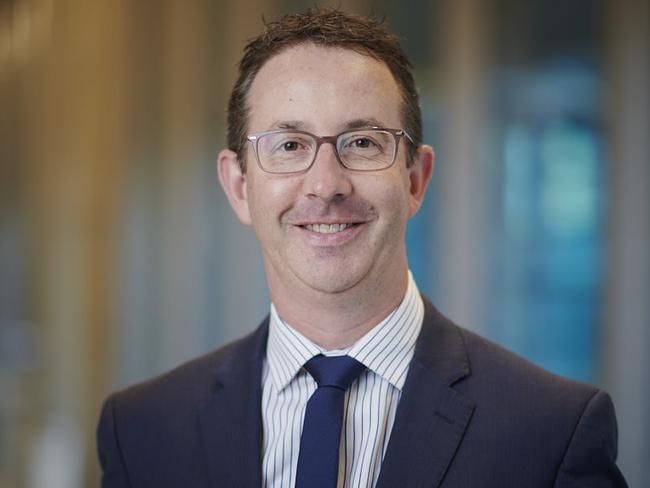
Consumer advocates said the profit and pay outcomes showed the system was stacked against small customers.
David Richardson, senior research fellow at left-leaning think tank The Australia Institute, said it was a good time to be running one of the big three power companies.
Mr Richardson said earnings from household and small businesses were “huge.”
“The price to consumers is a hell of a lot more than the price to large businesses,” he said. “What they publish about the additional costs for consumer customers in no way explains that full difference.”
Energy Consumers Australia CEO Brendan French noted there had been a 40 per cent increase in the number of households unable to pay their accounts.
“At a time when some of the bigger energy retailers are posting significant profits, we are seeing consumers finding it increasingly hard to meet high energy bills,” Dr French said.
“I don’t think you have to be Einstein to see there’s an imbalance between the consumer and the energy system.”
St Vincent de Paul energy policy and research director Gavin Dufty said if power companies weren’t “investing in the future or offering cheaper prices … you can understand why consumers, in a cost of living crisis, could be angry.”
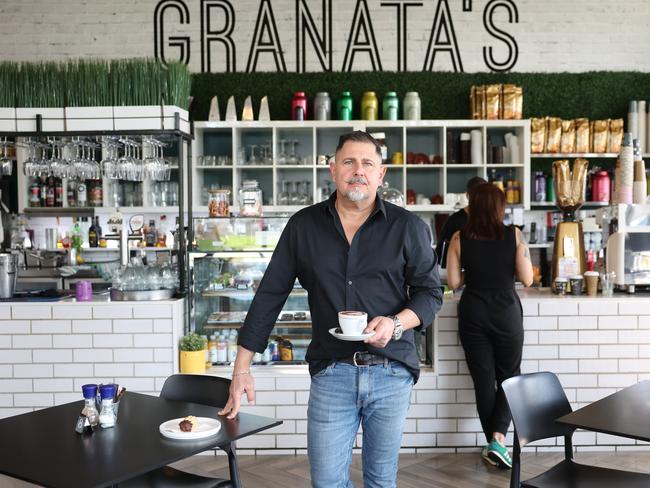
Popular western Sydney cafe Granata’s has been open for 11 years, in which time its daily electricity costs have risen from $30 to $80.
“I dread seeing that invoice come in every month,” said owner Gino Granata. “I don’t know where to find the money.”
About 40 per cent of the cost of running Granata’s at Pemulwuy, between Parramatta and Blacktown, is wages, as is the case for many cafes. Food is another 30 per cent. Rent has risen to 15 per cent and running expenses have surged to 10 per cent, leaving the family business with a margin of just 5 per cent. And that’s before paying tax.
“Sometimes I feel like I’m working for nothing,” Mr Granata said.
He can’t put up prices because many locals are also struggling financially.
His customers include federal Climate Change and Energy Minister Chris Bowen, who is the area’s MP, although Mr Granata said he doesn’t see the Labor bigwig as much as he used to.
Mr Granata said it would help if he had access to solar power, but there wasn’t much incentive for landlords to make that investment.
Granata’s customer base encompasses neighbouring Greystanes, which is where Origin Energy boss Frank Calabria was raised.
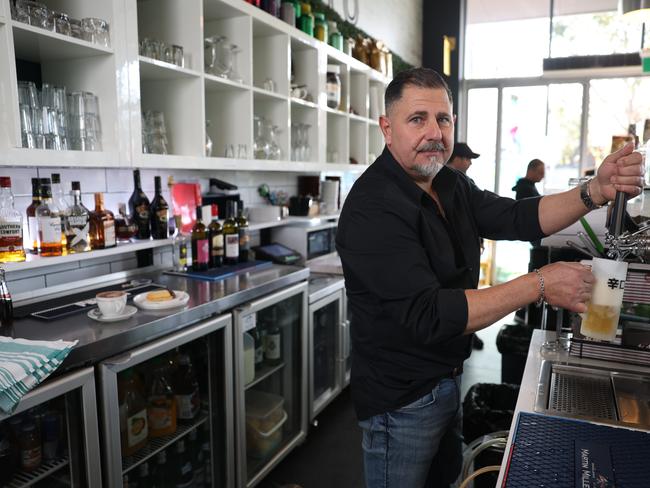
Mr Calabria took home $5.6m last financial year. That is possibly more than the combined earnings of all the people who still live on the Greystanes street where he grew up.
Around the corner from Mr Calabria’s childhood home, one of his Origin customers said his latest quarterly bill was $1000. It was $400 not that long ago, said the father of two, who asked not to be named for fear of reprisal from his landlord.
Down the road, another father, Aakash Krishnan, said his latest bill was $1700.
“It’s crazy,” Mr Krishnan said.
Residents at two other properties independently volunteered they were eating more salads to keep their power use down.
The power companies said they were investing in the future.
An Origin spokeswoman said Mr Calabria’s pay reflected “strong operational and financial performance.”
Its improved earnings was in part due to “the lagged recovery of higher wholesale costs.
“A profitable Origin is important, as it puts us in a stronger position to invest in the energy transition,” she said.
“We are acutely aware of the pressures facing Australian households,” the spokeswoman said, with $100m being spent to support vulnerable customers.
An AGL spokesman said it was increasing investment in the energy transition and in bill relief.
“We understand the pressure on households and businesses amid the broader cost of living pressures facing Australians at the moment,” he said. “This was factored into AGL’s retail pricing decision which has absorbed some of the increased electricity costs in order to support customers.”
EnergyAustralia declined to comment.




